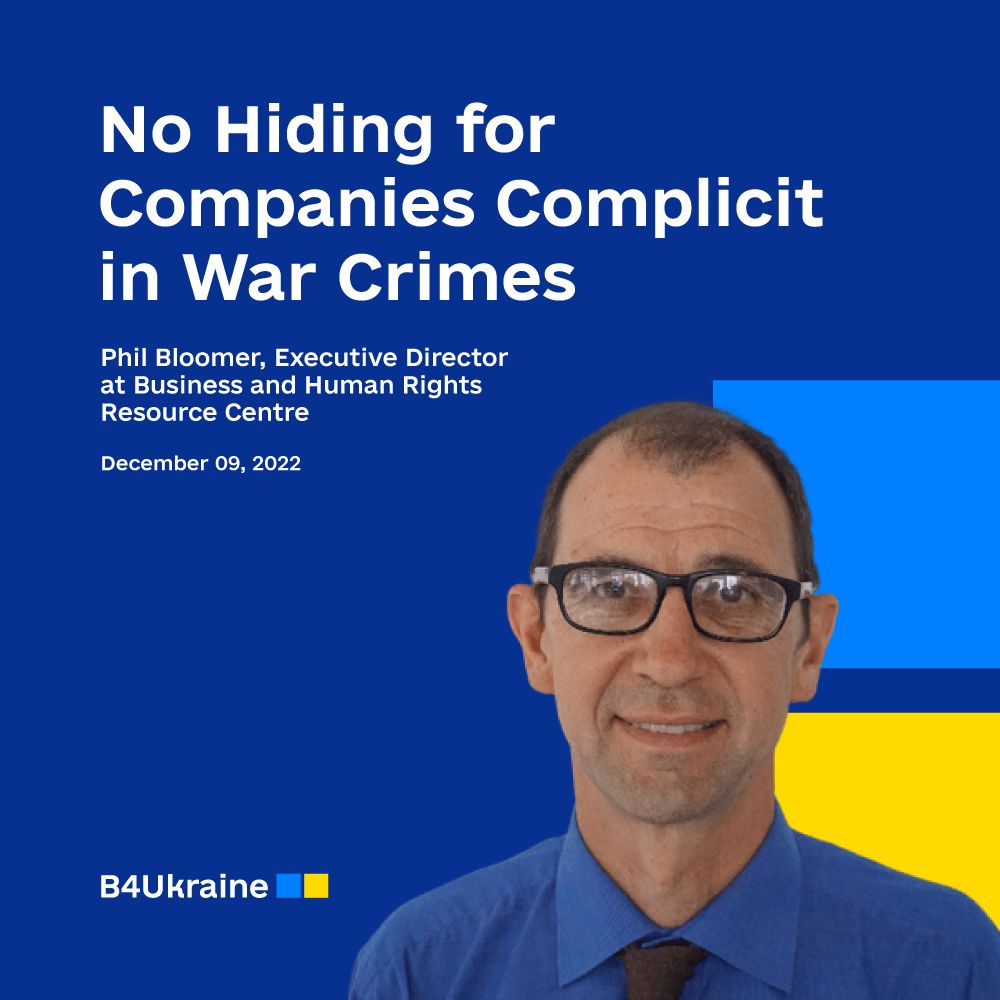
Highlights from the UN Forum on Business and Human Rights side event “From moral duty to legal obligation: Corporate behaviour and human rights in the context of invasion” organised by the Permanent Mission of Ukraine to the United Nations Office at Geneva, B4Ukraine, BHRRC and ISHR
Foreign companies that keep operating in Russia are open to the accusation of war profiteering, and they must be aware that there will be no hiding for those who are in some way complicit in generating the war crimes, said Phil Bloomer, Executive Director at Business and Human Rights Resource Centre.
“The Russian invasion of Ukraine is a manifest violation of the UN Charter. We have deliberate, indiscriminate, disproportionate attacks against civilians and against infrastructure. Executions, gender-based violence, and torture of civilians. What we’ve also got is a most significant, systematic effort on the part of the international community to monitor the war crimes that have been going on.”
The sanctions imposed on Russia at the time of the invasion created a far more hostile commercial environment for companies operating there, says Bloomer.
“A number of companies took very significant measures to either pull out or suspend their operations or scale down their operations. And there’s still a very significant number who remain fully commercially active in the country. They are, at least now, open to the accusation of war profiteering, because The UN Guiding Principles are very clear that any company involved in a conflict zone, and that includes Russia and Ukraine, has to be involved in heightened human rights due diligence, and that includes conflict analysis, that’s necessary.”
Business and Human Rights Resource Centre contacted 400 of the remainers. 40 of them responded with full or partial answers. As Phil Bloomer emphasizes, almost none could demonstrate effective heightened human rights due diligence, and it was a real disconnect between their public commitment and the actions that were taken.
“But there are companies that have done far more. For instance, Twitter did bring up a multifunctional disciplinary team together to do that kind of conflict analysis, as did Uber, Carlsberg, Ericsson — a number of companies took significant actions to make sure they were seeking to act responsibly.”
- Phil Bloomer is the Executive Director at Business and Human Rights Resource Centre.
Watch the full discussion at From moral duty to legal obligation: Corporate behaviour and human rights in the context of invasion